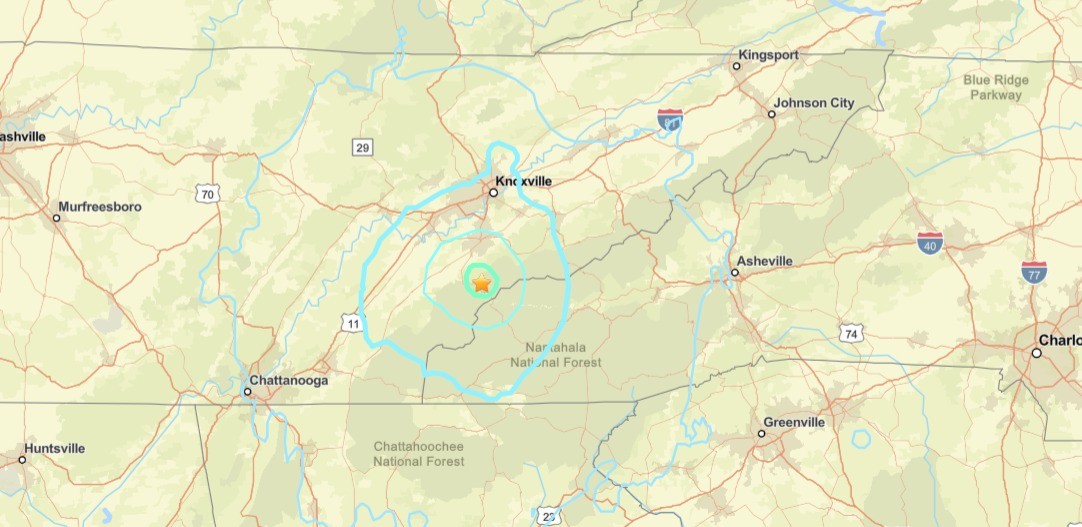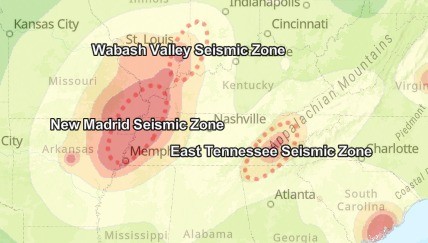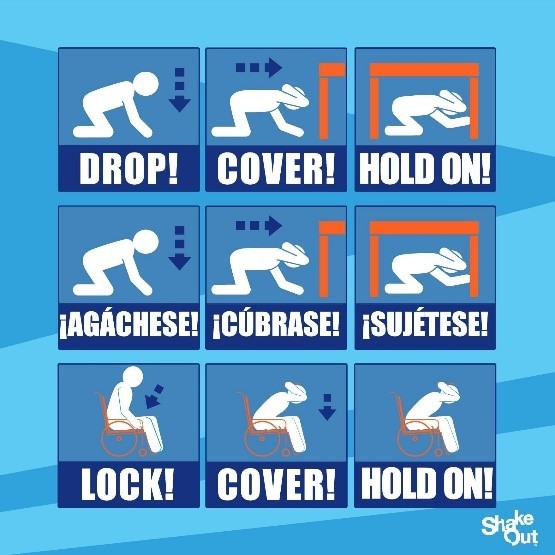Earthquake – Did You Feel It?
On the morning of Saturday, May 10, 2025, a 4.1 magnitude earthquake struck near Greenback, Tennessee, about 30 miles south of Knoxville. The tremor was felt across multiple states, including Georgia, North Carolina, and South Carolina, reaching as far as Atlanta.
The earthquake prompted over 29,000 “Felt Reports” to the U.S. Geological Survey (USGS) within the first hour. In total, more than 45,000 reports from Knoxville to Atlanta were collected through citizen science data, which you can view here.
The Tennessee Emergency Management Agency worked quickly with our state, regional, and local partners to identify any impacts Saturday morning, which included any needs for dam or road inspections. While no injuries or structural damage have been reported, the weekend quake is a reminder of one of the state’s hazards.

According to USGS, there were 29,000 reports submitted in the first hour after the earthquake occurred.

Tennessee has two seismic zones – the New Madrid Seismic Zone (NMSZ) in the west and the East Tennessee Seismic Zone in the east.
“Either of these seismic zones are capable of producing large, damaging earthquakes at any time,” said Brian Blake, Executive Director of the Central United States Earthquake Consortium (CUSEC). “There’s upwards of a 40% chance of an earthquake, a damaging earthquake, could happen in either of these areas in our lifetimes.”
TEMA works closely with the CUSEC, an eight-state partnership that facilitates earthquake preparedness and mitigation efforts across the region. Together, CUSEC, TEMA and the other member states, collaborate to conduct earthquake drills, provide technical expertise, and support opportunities for seismic hazard mitigation projects.
“It’s important to not panic, because earthquakes can occur at any time, but large, damaging earthquakes don’t occur as frequently as some other disasters, like floods and tornadoes, and things like that. But earthquake preparedness can translate into other disasters or hazards that you may take.”By acting today, you can reduce your vulnerability to earthquakes that may happen in the future."
To protect your family and home, consider:
- Securing heavy items like bookcases, refrigerators, televisions, and objects that hang on walls.
- Storing heavy and breakable objects on low shelves.
- Making improvements to your building to fix structural issues that could cause your building to collapse during an earthquake.
- Obtaining an earthquake insurance policy, especially if you are located in a seismic zone.
While earthquakes most often occur with little to no warning, knowing what to do if one occurs will help protect yourself and your family. Practice Drop, Cover, and Hold On with family, friends, and coworkers.
DROP to the ground,
Take COVER by getting under a sturdy desk or table, and
HOLD ON to it until the shaking stops.
Additional earthquake resources are available here.
